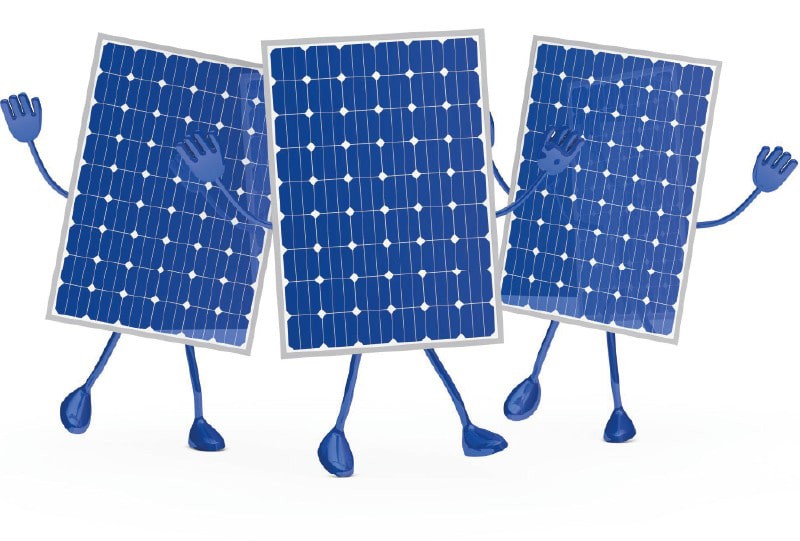Solar air conditioning: types, operation, price and light savings
Solar air conditioning is an air conditioning system that is powered by sunlight to generate cold. It is paradoxical to think that what causes high temperatures is also the most sustainable solution to them.
The use of traditional air conditioning in summer can account for up to 80% of the total expense on the electricity bill, however, solar air conditioning eliminates it completely, providing great electricity savings.
Below we show you the types of existing systems, their price and their operation, as well as some tips to completely reduce your electricity bill.

Types of air conditioning with solar panels and operation
There are different types of air conditioning with solar panels, whose installation must be carried out by an authorized installer for the correct placement of both the air conditioning and the solar panels, in addition to the handling. of the refrigerant gas.
Operation of solar air conditioning by absorption
Solar absorption air conditioning is a refrigeration system that takes advantage of the change in state and temperature of ammonia and water.
These substances are found in an absorption unit and trigger the following process to achieve cooling:
- Solar heat raises the temperature of ammonia and evaporates it
- The evaporated ammonia goes to a condenser that causes it to transfer heat to the outside and become a liquid state.
- The liquid ammonia passes through an expansion valve so that its temperature drops and reaches the evaporator, where it absorbs the air in the room and evaporates.
- The evaporated ammonia returns to the absorber unit and mixes again with the water
Air operation hybrid solar conditioning
Hybrid solar air conditioning consists of the installation of photovoltaic panels to produce the electricity that the air conditioning uses for its operation.
When there is solar radiation, the panels collect that energy and transform it into direct electrical current, thanks to an inverter. It is a system that works for any type of air conditioning that we know: split, ducted or portable.
How much does a solar air conditioning system cost?
Solar air conditioning kits usually have a price between €1,500 and €2,000 for a power of 2 to 3 kW. To this cost we must add the cost of installing air conditioning and solar panels, which to give us an idea will be:
- From between €600 and €800 per square meter, the installation of solar self-consumption. This will depend on the solar panel installer, so it is advisable to request different quotes and compare them before making a decision.
- From €265 for the installation of split air conditioning, from €550 for the installation of ducted air conditioning and from €120 for the installation of portable air conditioning
Therefore, the cost of installing a solar air conditioning system will always have a price higher than €3,000.
What electricity rate to contract if I have solar air conditioning
If you have just installed air conditioning in your home, or are thinking about doing so, it is recommended that you opt for the self-consumption modality with surpluses.
In this way, you will receive compensation, in the form of an economic reduction in your electricity bill, for pouring into the electrical grid the energy produced by your solar panels and that you do not use.
When choosing the most beneficial contract for your supply, you must take into account the following aspects:
- The price per kilowatt hour (kWh) of electrical energy consumed from the network
- The price per kilowatt hour (kWh) of the excess energy that will be poured into the electrical grid
- The electricity consumption schedules of the property's inhabitants
- The possibility of contracting a virtual battery, to accumulate surpluses that cannot be compensated in a billing period





Our customers trust us
Opinions of our clients
Receive our news